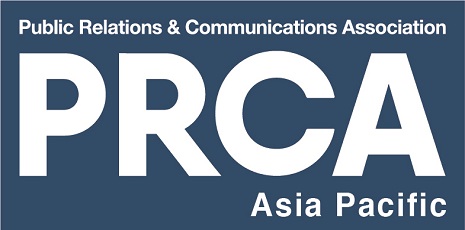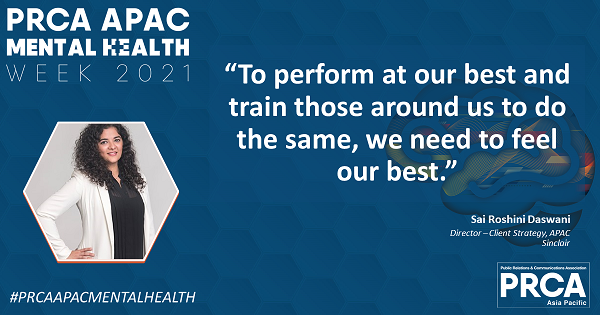The last 18 months have pushed many people to reconsider their lifestyles and life choices. So many of us have not been able to see our families and close friends in the last 18 months resulting in tensions running high in both professional and home lives. The ups and downs in the global economy have encouraged PR leaders in the APAC region to realise the importance of more holistic strategic guidance, and a more human-centric approach to team management with agility at its core.
Recent research has shown that PR industry is one of the top 10 most stressful jobs. As PRs, we are trained to be expert multi-taskers in everything from media relations to reputation strategy, event management to influencer and digital marketing. Overarching all of this, it is key to leverage the knack for storytelling and building important relationships that create impact. The onset of the pandemic added international news monitoring, crisis aversion and management, and helping clients navigate launches that align with governments’ changing restrictions in an unstable market to current job descriptions.
Personally, I believe that to navigate during turbulent times, we need to take extra care of our mental wellness, because to perform at our best and train those around us to do the same, we need to feel our best. Since every individual has their own way of handling a situation, instead of providing tips, I’d like to share a few key questions I’ve asked myself and the team over the last 10 months.
What motivates you?
Staying motivated can be a challenge when life feels stagnant without travel and new experiences, even though everything seems to fly by in a Covid month. Understanding what helps you stay motivated is a great first step. Is it a certain kind of client work? Is it learning a new skill? Or is it just getting better at what you already do?
Fostering a work environment that can discuss these questions, perhaps during quarterly check-ins, is essential to the growth of yourself and each team member.
Do my peers understand the importance of mental health?
Different cultures deal with mental health discussions differently. It is vital to take note of this before addressing an individual on this topic so as to not offend them, but it is equally important to share your views with your peers so that the people who work with you understand you better. It’s never too late to start the conversation.
At Sinclair, we worked on building awareness campaigns for MIND HK a few years ago which provided opportunities for the team to have conversations around mental health more often than otherwise. Putting this into a work situation and giving the team a common goal to work towards, provided the team with new methods to discuss real issues and build on future conversations.
What are my boundaries at work?
Working in PR, especially at an agency, means that each person is constantly working with different personalities and cultures, inclusive of those created by colleagues, clients, media, partners and others. It can be a high-pressured situation because of not one, but all of the persons around us, and it often feels like the roof is coming down. Sometimes it’s a text on the weekend asking for a status update, an extremely tight deadline, or managing uncertainties, especially while many are working remotely. Regardless of the situation, knowing when to draw the line and say no is a skill based on priorities you’ve identified to achieve the best personal outcome.
While managers need to set a standard that creates work-life balance within the office environment so that juniors on the team know that it is acceptable, guiding the team on how to converse with stakeholders in a professional manner is as critical. Building a safe place with a culture that colleagues enjoy fitting into is essential to growing the team and employee retention.
What does self-care mean to me?
One size does not fit all. Self-care comes in many forms: emotional, practical, physical, social, spiritual. We’d probably need to try a lot of them and reflect before knowing what works best. Once we know what helps when it comes to trying to take care of your mental wellbeing, we can make that a priority.
We constantly hear about how great exercise is for us, but personally, I’ve never felt like I needed it more than in the last few months. The endorphins from skipping, lifting weights, and hiking have been an anchor for me and have even helped me take up a healthier diet that has its own set of benefits.
It’s not too late to take your mental health and wellbeing into your own hands.
Start by asking yourself a few questions, and share it with a friend.
Written by Sai Roshini Daswani, Director – Client Strategy APAC at Sinclair.
Connect with her via LinkedIn.



